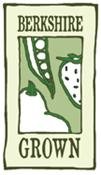Wednesday, February 11, 2009; F01 Washington Post
Sustainable-food and farming activists in Washington have long felt they were on the outside looking in. New Secretary of Agriculture Tom Vilsack says he wants to change that. In an interview with staff writer Jane Black, the former Iowa governor, 58, talked about his personal struggles with food and about his vision of how to transform the department -- maybe even rename it -- to serve a broader range of interests. Edited excerpts follow:
Some in the sustainable-food community have worried that you are too closely identified with ethanol and agribusiness. Is that fair?
First, I would ask for the opportunity for people to get to know me and judge me by the actions I take in this office. I'm not sure the full nature of the record was understood.
What don't people know about you that might change their minds?
Food during my early years was a very difficult issue for me. I grew up in an addictive family. My mother had serious problems with alcohol and prescription drugs. I was an overweight kid. I can remember back in those days there weren't the strategies that there are today to deal with those issues. So my parents put this very nasty cartoon of a very overweight young kid with a beanie cap and pasted it on the front of the refrigerator. So every time I opened the refrigerator I had to look at that picture.
Food is a fairly significant aspect of my life. I have struggled mightily with food. With my weight. And I'm conscious of it. So I have a sensitivity to people who struggle with their weight. That's one aspect people don't fully appreciate. I don't want youngsters to go through what I went through.
There are ways we can go do a better job of educating young moms and dads about the vital role they have as the child's first teacher. I think there are ways in which we can partner with local school districts and states to do a better job to provide nutrition options at school. It's our responsibility to get this health-care crisis under control. I think if people understand that history and how serious I am about this and look at the record in Iowa -- the real record in Iowa -- they would be less concerned than they were.
What specific ideas do you have about how to move forward to improve nutrition in school lunches?
Part of my responsibility is to find people who share my concern and have more expertise than I do. People we nominate will be people who understand this issue and have the desire to effect change. The specifics of how we can do this will come from the experts. My job is to listen to the president, who is the ultimate vision maker, articulate his vision to the people who work in this department and add my two cents' worth. The vision is, he wants more nutritious food in schools.
Will local foods play a part?
In a perfect world, everything that was sold, everything that was purchased and consumed would be local, so the economy would receive the benefit of that. But sometimes that stresses the capacity: the production capacity or the distribution capacity. Especially since we don't have yet a very sophisticated distribution system for locally grown food. One thing we can do is work on strategies to make that happen. It can be grant programs, loan programs, it can be technical assistance.
Whom do you see as your constituency?
This is a department that intersects the lives of Americans two to three times a day. Every single American. The department has a global influence in terms of food, in terms of consumers and in terms of some of the moral challenges that a wealthy nation faces in the face of hunger. So I absolutely see the constituency of this department as broader than those who produce our food. It extends to those who consume it.
I know you are aware of the lists of progressive candidates for undersecretary that are circulating. How will you bring new voices into the debate?
As we set up advisory boards and committees, we'll have a better representation of people involved in food and agriculture. I think it's not so much the names on the list as a recognition of the vision: a sufficient, safe, nutritious food supply produced in a sustainable and environmentally supportive way. There's a recognition of the importance of that.
Is it true that you are thinking of changing the name of the department to include a reference to food?
We haven't got to that point. Rather than renaming it, as important as some people may feel that would be, I think [we need] a recognition that this was America's first energy department. If you think of what food is, it's the energy we use to do our daily work. I want people to know about the USDA. This is a very important department. It's not fully appreciated as such.
It's hard to convince people of that sometimes.
You tell them there's a new day here. You tell them every time they pick up a fork, every time they pick up a spoon, every time they slice a piece of bread, remember America's first energy department.


No comments:
Post a Comment